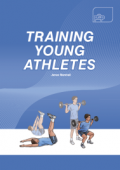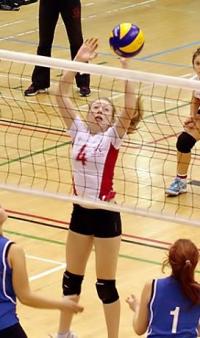Main Menu
Latest Blog Entry
User login
Training young athletes: Part 7 Marco Cardinale
 In this Olympic Year, I thought it would be a good idea to hear from coaches who have worked with developing athletes and their thoughts. Today Marco Cardinale who is the head of Sports Science and Resarch at the British Olympic Association.
In this Olympic Year, I thought it would be a good idea to hear from coaches who have worked with developing athletes and their thoughts. Today Marco Cardinale who is the head of Sports Science and Resarch at the British Olympic Association.
I started my career coaching young athletes. I was in fact a Handball coach, interested in developing young handball players. Our programmes started with kids in primary schools all the way to the senior national teams.
Working with young athletes has always been rewarding as you see them growing and improving and very quickly you can see the ones having the right attitude about hard work and commitment which will lead them to sporting greatness. Rewards don’t come only from the one winning medals, they come from seeing everyone reaching their potential and maximising learning to become better.
So, here are few hints and tips.
1) Each training session counts, but only if the athletes are connected and willing to engage
2) Each training session has to have a purpose, athletes need to know why they are doing it
3) Learning happens with deep practice, so make sure the athletes are immersed in what they do
4) Use random practice to create challenging environment, however keep in mind progression needs to be appropriate to the skills of the athletes you are coaching
5) Make sure athletes write things down and are actively engaging in learning what they are doing
6) Give ‘process orientated praise’. For example, praise the athlete’s effort and strategy. E.g: ‘You really tried hard’; ‘That was a good way to do it’
7) Emphasize hard work and learning, you can get better if you learn more than your opposition
8) Use interactive technology, the young generation likes interactions, persuasive technologies can be very effective
Coaching Generation Y
The way we coach/teach athletes now needs changing as new generations cannot be coached in the same way as the old one. Some fundamentals are still valid. Hard work and learning are the fundamental aspects for a young athlete, deep practice, passion for the sport and knowledge are the building blocks of elite performers.
Young athletes willing to excel in sport should look at young musicians or artists. You can only excel if you study your sport, if you develop a deep inquisitive knowledge of all the aspects relevant to your sport (equipment, nutrition, tactics).
So, look at the best in the World, learn what they do, write notes, take pictures, save videos, analyse their performances, admire the skills and think about how you can develop new ones.
The young athletes of today will be tomorrow’s champions only if they will play a different game than today’s champions.
Marco Cardinale
 If you wish to have an easy to follow guide to training young athletes, then click on the book cover to the right. I wrote this standing on the shoulders of giants.
If you wish to have an easy to follow guide to training young athletes, then click on the book cover to the right. I wrote this standing on the shoulders of giants.
Client Testimonials
 Helen Farr
Helen Farr
The access to expert advice on training and coaching in the STS has been extremely beneficial when guiding Helen (15) through different stages of her physical development. Time is very precious and especially as busy parents of even busier teenagers, we need all the help we can get. As well as following the programme, it has been really useful to dip into certain topics as and when situations occur. Advice on how to prevent and counteract knee problems was certainly helpful when Helen started complaining that ‘her knees were hurting’ directly after competitions.
More

